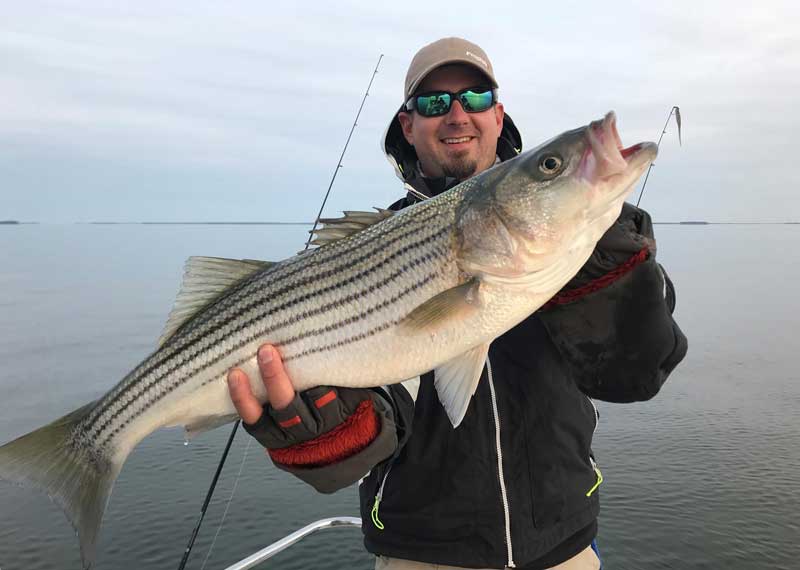The Maryland Department of Natural Resources (DNR) announced new striped bass (rockfish) conservation regulations for the Spring 2020 fishing season to meet a coast-wide conservation target.

The 2018 benchmark stock assessment for striped bass indicated declines, so the Atlantic States Marine Fisheries Commission (ASMFC) has determined that conservation measures are needed for the 2020 fishing season. ASMFC is a management entity comprising 15 member states on the East Coast, including Maryland.
The conservation goal set by ASMFC is to reduce the total number of striped bass that are killed by fishing activities. This means reducing the number of fish that are harvested and the number of fish that die after being caught and returned to the water, known as dead discards.
Maryland’s management changes follow numerous meetings and discussions with stakeholders and a month-long public comment period, and were developed using the best available science and decades of experience. Measures for spring are designed to protect large migratory spawning fish as they enter the Bay. The implementation plan was reviewed and approved by ASMFC’s Striped Bass Technical Committee and the ASMFC Board on February 4.
In addition to a cut in the commercial quota, targeting of striped bass by the recreational sector will be prohibited starting April 1 — including a prohibition of trolling — and the spring trophy season will be delayed until May 1.
Limits are one fish per person at a 35-inch minimum. These rules will be in effect until May 15. The full regulations can be viewed on DNR’s website.
The department will also move forward with conservation options for the summer and fall seasons in the 2020 Implementation Plan. Measures in the summer and fall are designed to reduce mortality caused by high temperatures and low oxygen in the water. The department will announce a public comment schedule for those regulations in the coming weeks.
In 2018, the department raised concerns about the problem of discard mortality with ASMFC. This resulted in Maryland being authorized to adopt a decreased minimum size from 20 to 19 inches. In addition, Maryland took unilateral action to require the use of circle hooks when chumming and live lining. Circle hooks are an effective conservation measure because they significantly reduce “gut hooking” that leads to discard mortality. ASMFC has now asked all other states to follow Maryland’s lead and enact this policy.
DNR also launched and is continuing to expand a statewide educational outreach program to assure compliance with these regulations. The department also instituted a system of advisories for anglers on hot days where both water and air temperatures could increase the likelihood of stress on striped bass.